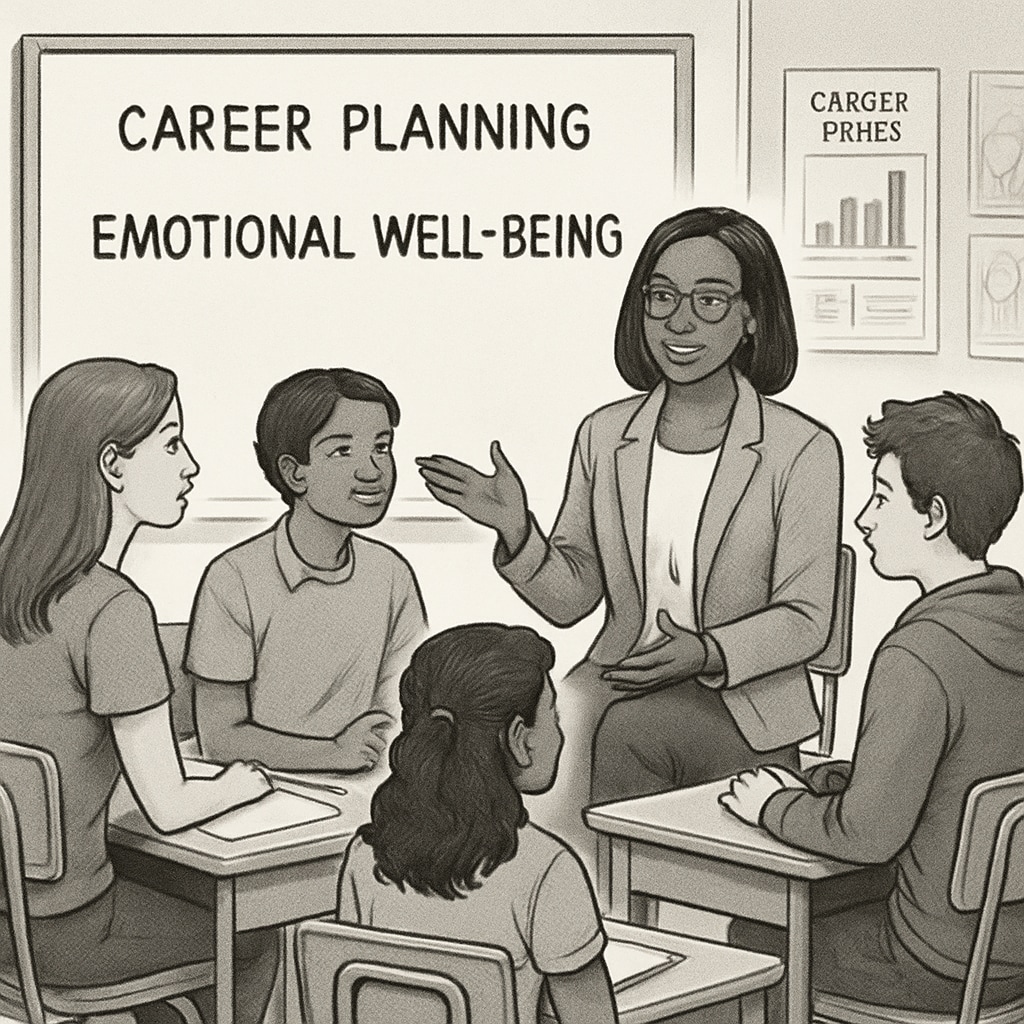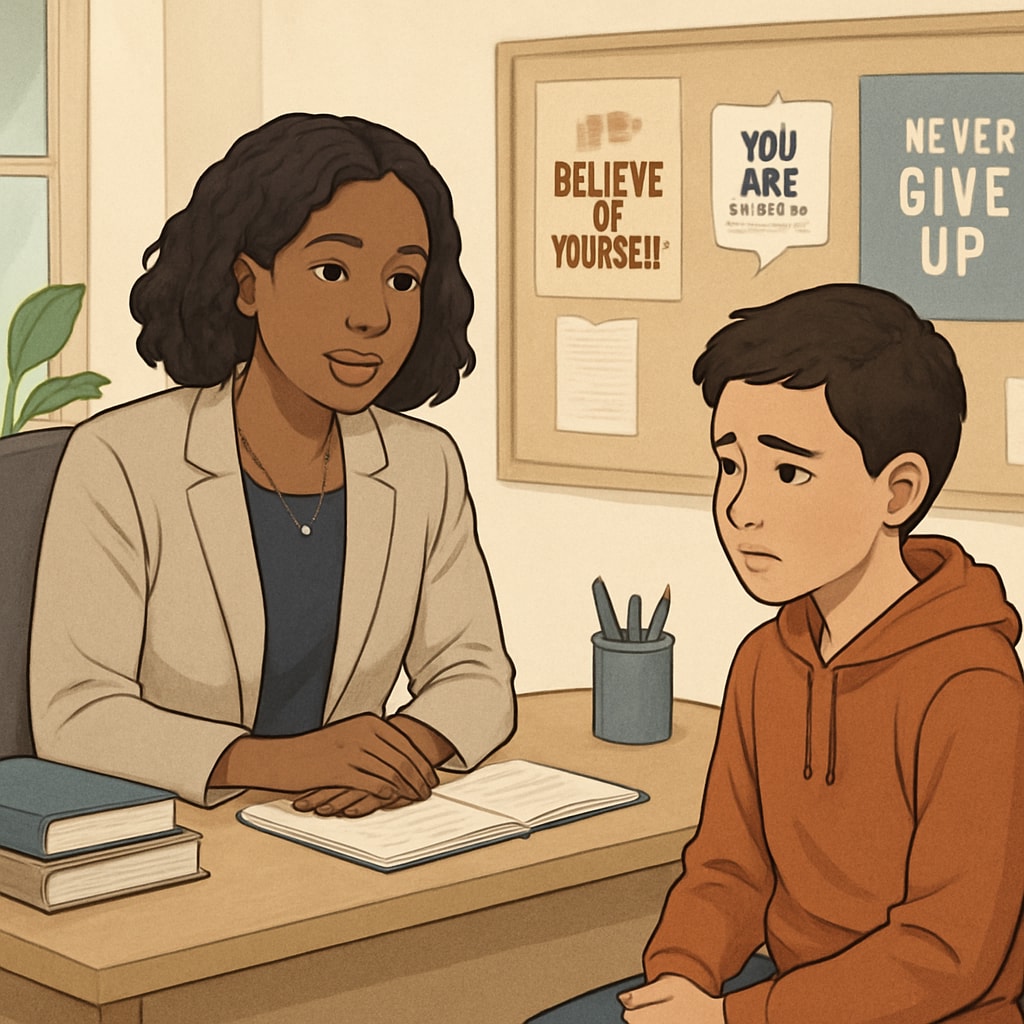School counselors are an integral part of the K12 educational system, serving as a critical bridge between students’ mental health and academic success. For those conducting research, seeking interviews, or completing graduate assignments, understanding the multifaceted roles of school counselors is essential. From addressing emotional well-being to guiding academic paths, counselors shape the lives of students every day. This article delves into their key responsibilities, highlights the differences between middle and high school counseling, and provides a practical framework for researchers interested in interviewing these education professionals.

The Essential Role of School Counselors in K12 Education
School counselors wear many hats within K12 institutions. They address students’ social, emotional, and psychological needs while helping them navigate academic challenges. For example, counselors often intervene during critical moments, such as a student experiencing anxiety or requiring help with college applications. Their work also extends to collaboration with teachers, parents, and administrators to create supportive learning environments. Recognizing these contributions is vital for researchers aiming to understand the broader impact of school counseling.
- Emotional Support: Counselors provide individualized guidance, helping students cope with stress, bullying, and personal challenges.
- Academic Guidance: They assist in course selection, study strategies, and long-term planning, including college and career preparation.
- Crisis Management: In challenging situations, such as family issues or mental health crises, counselors offer immediate intervention and resources.
As a result, school counselors play a pivotal role in ensuring that every student has the opportunity to thrive academically and emotionally.
Middle School vs. High School Counseling: Key Differences
Middle school and high school counselors share common goals, but their approaches and priorities often differ due to the unique developmental challenges faced by students at each stage. Understanding these distinctions can be particularly helpful for researchers preparing interviews.
- Middle School Focus: Counselors in middle schools emphasize helping students adapt to new environments, develop social skills, and manage early adolescence. They often address issues like peer pressure and self-esteem.
- High School Focus: High school counselors, on the other hand, prioritize college and career readiness. They help students navigate standardized testing, scholarship applications, and post-graduation plans.
- Shared Responsibilities: Both groups focus on mental health support, conflict resolution, and creating inclusive educational experiences.
These differences and similarities highlight the versatile nature of school counseling and showcase the adaptability required to meet students’ needs across age groups.

Preparing for Interviews with School Counselors
For graduate students and researchers aiming to interview school counselors, preparation is key. Here are some tips to ensure meaningful and productive conversations:
- Understand Their Work: Familiarize yourself with the basic responsibilities and challenges faced by school counselors. Reading articles or consulting resources like the Britannica entry on school counseling can provide a solid foundation.
- Tailor Your Questions: Design questions that explore both general aspects of their role and specific experiences. For instance, ask about the impact of remote learning on students’ mental health or their strategies for managing diverse student needs.
- Respect Their Time: School counselors often have demanding schedules. Be concise and considerate when requesting interviews, and offer flexibility to accommodate their availability.
By approaching interviews with preparation and respect, researchers can gain valuable insights into the real-world practices of school counselors and their impact on student development.
Conclusion: Bridging Mental Health and Academic Success
School counselors in K12 education play a vital role in shaping the future of students. Their ability to address mental health challenges, provide academic guidance, and manage crises makes them indispensable in the educational system. For researchers and graduate students seeking deeper understanding, interviewing counselors offers a firsthand perspective on their critical contributions.
As you craft your research or assignments, remember the importance of highlighting these professionals’ work. They are not just advocates for students but also champions of holistic education, bridging the gap between emotional well-being and academic growth.
Readability guidance: The article uses concise paragraphs, lists to summarize key points, and transitions to maintain flow. Passive voice is minimized, and sentences are kept at an optimal length for clarity and engagement.


